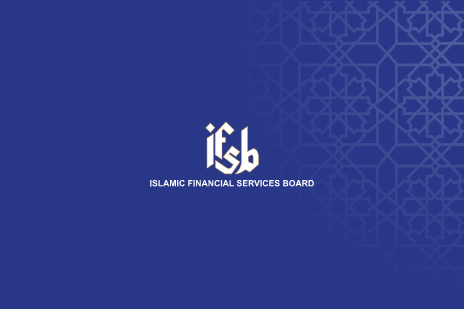October 6, 2016
@
8:30 AM
–
12:30 PM
The World Bank (WB) and the Islamic Financial Services Board (IFSB) are jointly organising a
High-Level Seminar on Sustainable Development Goals and the Role of Islamic Finance on
6 October 2016, during the INMF – WB Annual Meetings in
Washington D.C., USA.
This seminar is designed to encourage broad interaction among the delegates to explore the prospective role of Islamic finance in supporting social and economic development globally with the hope of achieving the United Nation’s Sustainable Development Goals. To this end, the Seminar will offer perspectives of Islamic finance principles, and financing modalities, which directly relate to the potential role of this quickly expanding sector in addressing the global funding gap, both in the developed and developing world, whilst tapping into the ethical investor market. The Seminar also will discuss the potential for synergy in the roles of policy-makers, regulators and market players in helping to expand the role of Islamic finance in achieving socio-economic goals.
Participation in this High-Level Seminar is by Invitation Only. For enquiries, please contact the IFSB Secretariat;
Ms. Yazmin Aziz at
[email protected].
Event Snapshots
The World Bank – IFSB High-Level Seminar was attended by more than 100 participants, including government officials, bankers, asset managers and academics from all over the world, which was held at the office of the World Bank Treasury on October 6. The Seminar was held in conjunction with the IMF/WB Annual Meetings in Washington D.C
The Seminar was highlighted by a Keynote Address by His Royal Highness Muhammadu Sanusi II, the Emir of Kano and former Governor of the Central Bank of Nigeria, followed by an extensive question and answer session, moderated by Dr. Michael J.T. McMillen, Adjunct Professor, University of Pennsylvania and Partner at Curtis, Mallet-Prevost, Colt & Mosle LLP, USA.
The Seminar has featured Dr. Walid Abdelwahab, Islamic Development Bank, Mr. Cyrus Ardalan, International Finance Facility for Immunization, Mr. Osman Celik, Undersecretariat of Treasury of Turkey, Mr. Mohd Izani Ghani, Khazanah Nasional Berhad, Malaysia and H.E. Dr. Muliaman Hadad, Financial Services Authority of Indonesia as panelists.
Ms. Arunma Oteh, the Vice President and Treasurer of the World Bank delivered the Opening Remarks, followed by a speech by Mr. Jaseem Ahmed, the Secretary-General of the IFSB. The Seminar ended by Closing Remarks by Ms. Gloria Grandolini, Senior Director of the World Bank’s Finance and Markets Global Practice Group.
Programme – Event Session(s)
| Date |
Time |
Topics |
| Day 1
06/10/2016 |
WB-IFSB HIGH-LEVEL SEMINAR ON ISLAMIC FINANCE
THEME: SUSTAINABLE DEVELOPMENT GOALS AND THE ROLE OF ISLAMIC FINANCE |
| 08:30 – 09:00 |
Registration |
| 09:00 – 09:20 |
Welcoming Remarks Ms. Arunma Oteh, OON, Vice President and Treasurer, World Bank |
| 09:20 – 09:50 |
Keynote Address H.R.H. Muhammadu Sanusi II, The Emir of Kano and Former Governor, Central Bank of Nigeria |
| 09:50 – 10:10 |
Cofee Break |
| 10:10 – 10:30 |
Introduction of Moderator & Panel Members Mr. Jaseem Ahmed, Secretary-General, Islamic Financial Services Board |
| 10:30 – 12:10 |
Panel Discussion : “Realising Sustainable Economic and Social Objectives through Islamic Finance” Moderator: Dr. Michael J. T McMillen, Adjunct Professor, University of Pennsylvania and Partner at Curtis, Mallet-Prevost, Colt & Mosle LLP Panelists: H.E. Dr. Muliaman Darmansyah Hadad, Chairman of Board of Commissioners of the Financial Services Authority (OJK), Indonesia Mr. Osman Çelik, Head, Undersecretary of Turkish Treasury, The Republic of Turkey Mr. Cyrus Ardalan, Member of the Board, International Finance Facility for Immunisation, United Kingdom Mr. Mohd Izani Ghani, Executive Director, Finance and Chief Financial Officer, Khazanah Nasional Berhad, Malaysia In the backdrop of global macroeconomic challenges and financial pressures in major markets, the fast expanding global pool of Sharī`ah-compliant capital has become an attractive source for various sovereigns, government-related entities and corporates to tap into to meet their financing needs. Additionally, Islamic financing facilities have also begun to be innovatively used for funding various social projects including vaccination/immunisation programmes, student educational loans, financing green energy projects, improving quality of education in public schools, providing microfinance to low-income groups, etc. There is significant potential for Islamic finance to support social and economic developments globally with the hope of achieving the United Nation’s Sustainable Development Goals. This panel will seek to develop insights and proposals for both policy makers and the private sector from the perspective of utilising Islamic finance as an economically viable alternative funding source to attain global economic and social objectives. In particular, the panel will examine the potential for public-private synergies in the development of an Islamic finance legal and regulatory framework, and for a sound supportive institutional structure, as well as for knowledge sharing and capacity development goals. The panel will showcase real-life case studies on Islamic finance to provide practical examples on the above. |
| 12:10 – 12:30 |
Closing Remarks Ms. Gloria Grandolini, Senior Director, Finance & Markets Global Practice Group, World Bank |
| 12:30 – 12:30 |
End of Seminar |
Downloadable Document(s)

























